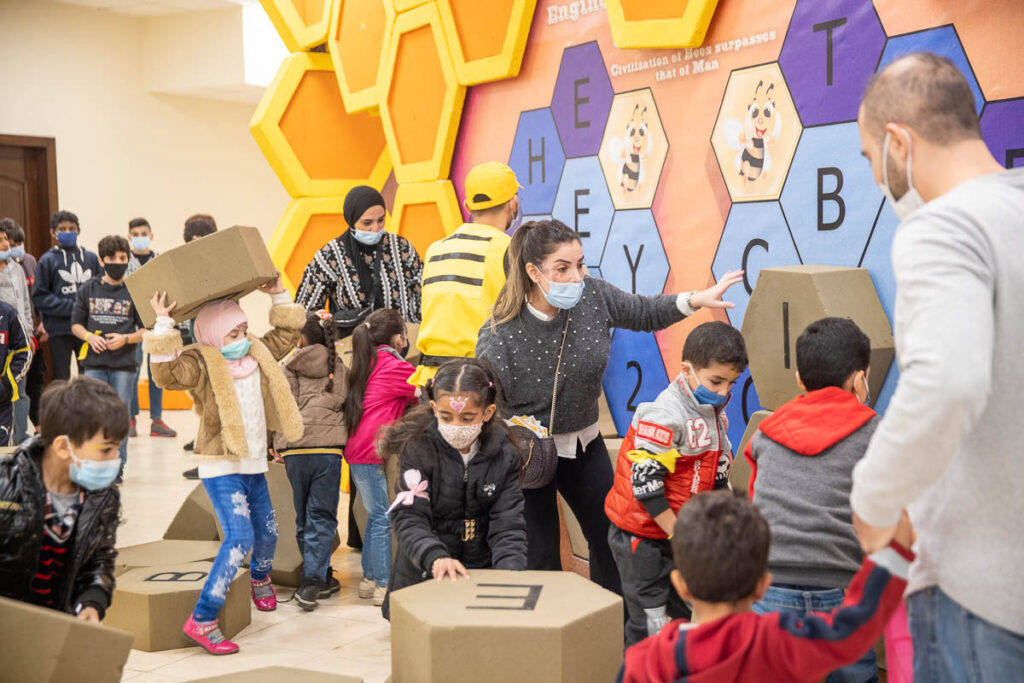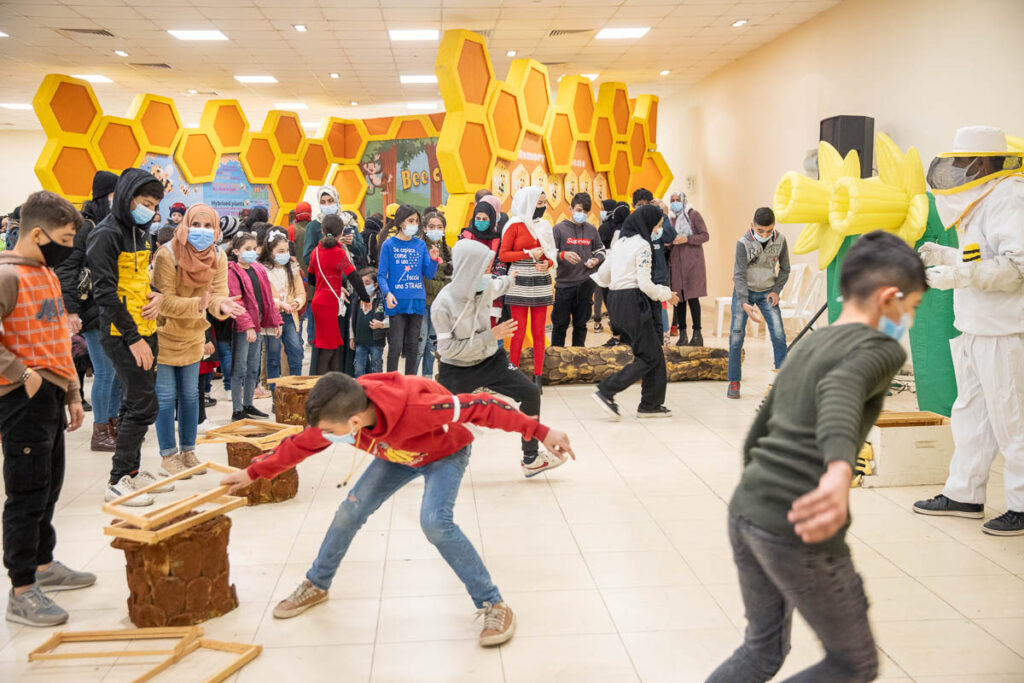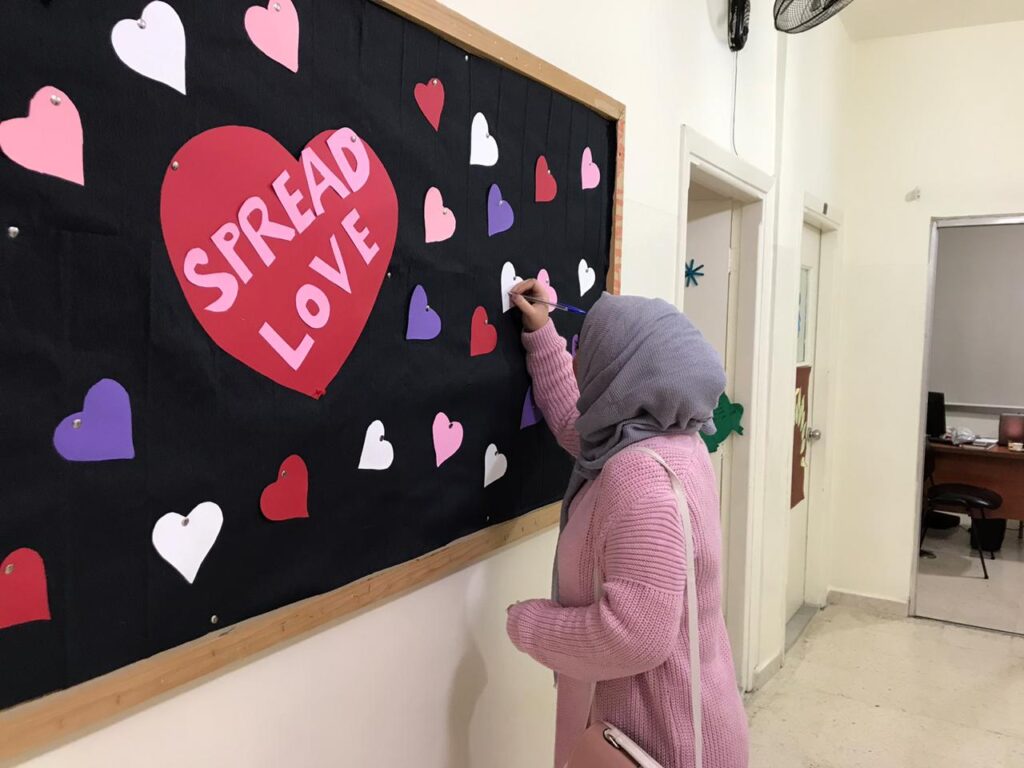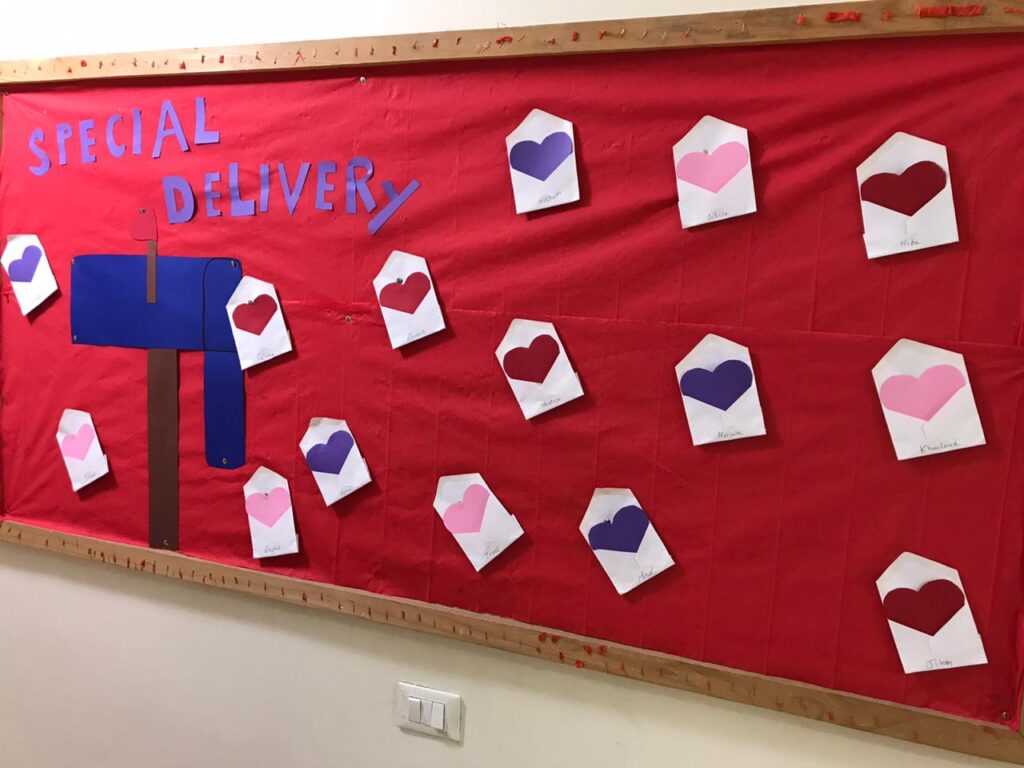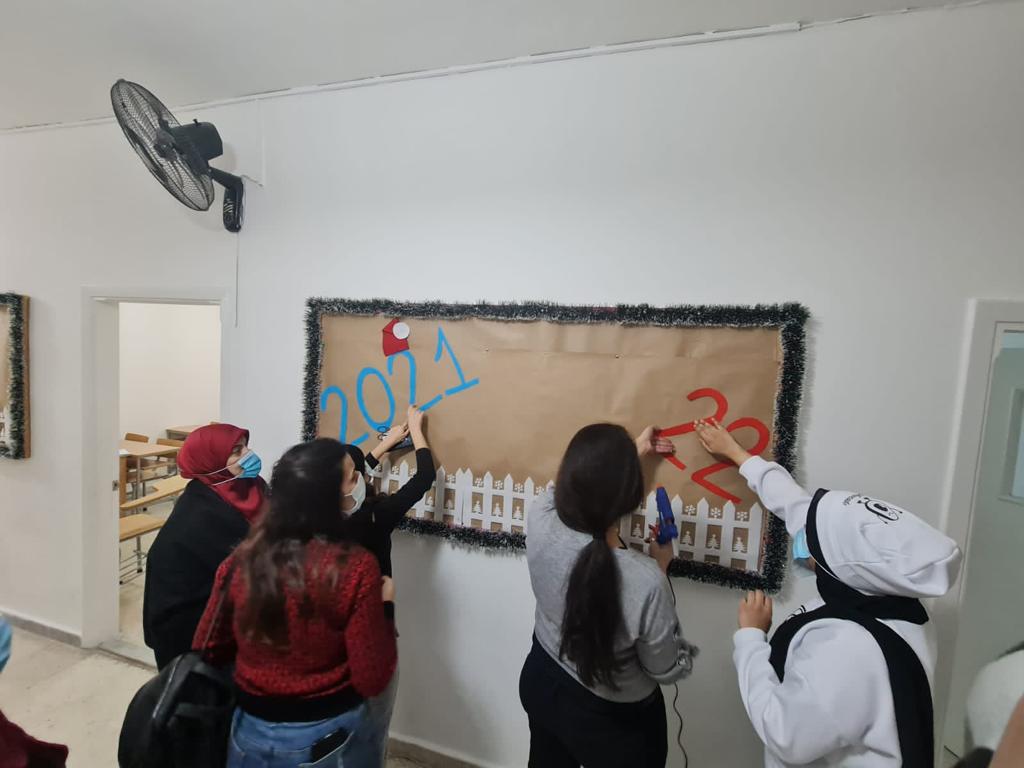Kunu Antou ( ‘Be Yourselves’) is aimed at 150 children aged six to fifteen at high risk of dropping out of school who live in the southern districts of Beirut. Kunu Antou was set up in response to the emergency caused by the social and economic crisis that has plunged a large part of the Lebanese populace into poverty. Almayuda supports this educational programme, launched by the non-denominational Lebanese NGO AMEL Association International, which has been working since 1979 to help local and migrant populations in poverty.
AMEL was begun by Dr. Kamel Mohanna, an eminent figure in Lebanon who trained in paediatrics in France. He became active in humanitarian aid in 1975 at the outbreak of the civil war, which resulted in 130,000 to 250,000 civilian victims and led to an exodus of a million people.
In 1979, when the tragedy was exacerbated by the Israeli Operation Litani in South Lebanon, Dr. Mohanna founded the AMEL Association International to provide aid to the victims of the conflict. During this period of extreme violence, the new NGO stood out for its emergency medical initiatives: field hospitals, free clinics, ambulances, etc.
Kunu Antou: action in emergencies!
Since the restoration of peace at the start of the 1990s, AMEL has been running literacy, vocational training, help for the disabled, rural development and other programmes. Alongside this work, it has set up twenty-four social centres in the most deprived areas of Lebanon, among them the southern neighbourhoods of Beirut, Mount Lebanon, the Beqaa Valley and South Lebanon.
In 2011, with the start of the Syrian crisis and the arrival of thousands of refugees, AMEL launched an emergency humanitarian plan to provide care, food and education for children out of school. In 2012, over 500 children benefited from an accelerated learning programme (ALP) intended to help them catch up on lost education and return to the normal school system.
This is the context, exacerbated since 2018 by an unprecedented social and economic crisis, in which Kunu Antou operates. In a situation in which the Lebanese education system has been brought to its knees, the programme constitutes emergency aid rather than a long-term initiative.
The project covers 150 children aged six to fifteen classified as vulnerable according to UNICEF and AMEL: number of people in the household, single-parent household, mother as head of the family, single source of income, family member who has special needs, etc.
In addition to these family criteria are those of vulnerability at school and the risk of dropping out due to various factors: distance to school, delay in starting schooling, missing out on school for a year or more, falling behind at school, etc.
Be Yourselves!
Kunu Antou’s approach aims to be as inclusive and egalitarian as possible. The goal is to take in an equal number of girls and boys from all nationalities and communities: of Lebanese descent and of foreign origin, migrants and refugees.
Wherever they come from, the young people accepted by Kunu Antou inhabit the southern outskirts of Beirut, one of the most vulnerable areas in Lebanon. They live in the quarters around the Haret Hreik social centre, opened in 2009 by AMEL. To ensure safe transport to and from the centre, buses pick pupils up and then take them back at the end of the activities.
If Kunu Antou, which means ‘Be Yourselves’, was given this name, it is because the children’s autonomy is regarded as crucial to the success of their re-insertion into Lebanese schools. The multidisciplinary supervisory team includes education assistants, educationalists, social workers, a psychologist, a management team and drivers. Though the emphasis is on knowledge acquisition and consolidation, with special support for homework and remedial sessions, importance is also accorded to the young pupils’ psychological and emotional wellbeing.
Activities such as art and PSS (psychosocial support) raise pupils’ confidence in their chances of succeeding and of improving their school results. Furthermore, as children’s home environments affect their ability to fulfil their promise, the project is also aimed at their families and their community in order to attack the issue of failure at school at the roots.
The project is all-encompassing as it encourages communities to engage long-term in promoting education by fostering families’ involvement, notably that of mothers, in the activities undertaken by their children and in one-off events, parent committees, etc. Lastly, the members of the AMEL team also benefit directly from the Kunu Antou project through job opportunities and the possibility of professional development.
AMEL’s overall approach and values of inclusion and equality are shared by Almayuda and have convinced it to support the Kunu Antou programme.
Useful links :
https://french.amel.org/
https://amel.org/


